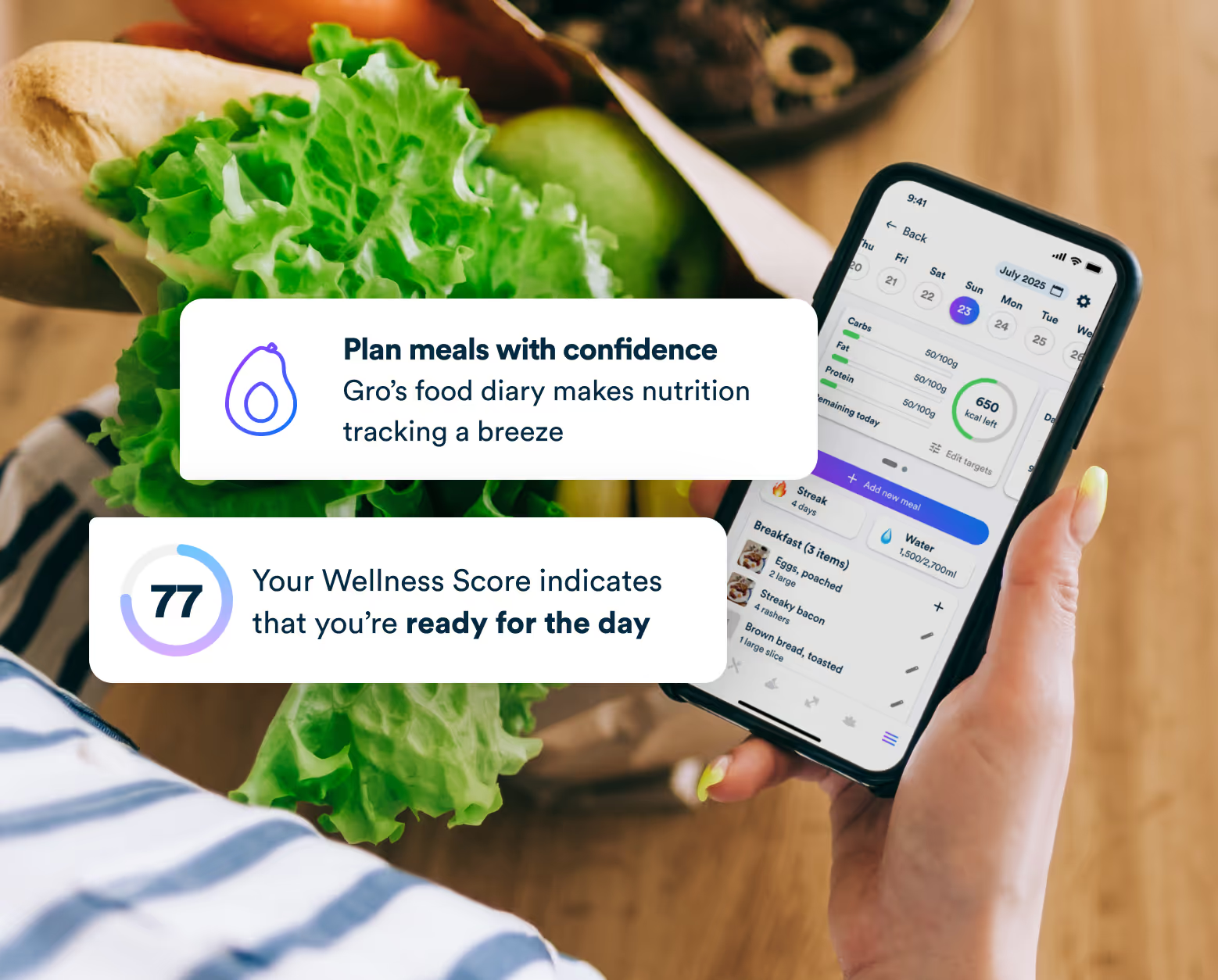We’ve added it to our teas and coffees, baked it into sweet treats and topped our morning breakfast with it. Before going low carb, sugar was likely a part of many of our diets, but were we addicted to it?
There’s an increase in research to suggest that sugar may be as addictive as other substances such as caffeine and nicotine. So, if you’ve had a hard time keeping away from sugar, this might be why.
In this article we’ll be looking at some of the possible causes of sugar addition, then we’ll look at some signs that you might be a sugar addict and finally, a few ways you can combat cravings and break up with the sweet stuff for good.
What causes a sugar addiction?
One of the drivers behind sugar addiction is thought to be the effect that eating hyperpalatable foods have on the rewards system in our brain. Several neuroimaging studies have found that when we eat hyperpalatable foods, such as those high in sugar, this causes a release of the feel-good hormone dopamine in our brain.
Over time we may begin to associate sugary foods with feeling happy and comforted, so will reach for these foods if we’re feeling low or need a pick me up.
This association can also start in childhood, we might be more likely to develop this habit if we were rewarded with food by our parents when we were younger. You can read more about the possible theories behind sugar and food addiction in our article on emotional eating.
Am I a sugar addict?
The Yale Food Addiction Scale (YFAS) is a questionnaire that is used to determine if someone is experiencing signs of food addiction [3]. The survey contains 25 questions about eating habits that the person responds to by stating how often they’ve experienced that habit in the past 12 months.
The questionnaire asks the person to think about when they’ve had difficulty controlling their intake of certain foods including sweet foods such as chocolate and cake and starchy foods such as bread and pasta.
According to the YFAS, here are a few markers to suggest someone may have a problem with sugar and food addiction:
- Continuing to eat these foods even if you don’t feel hungry
- When you’ve tried to cut down on your intake in the past, it’s increased your cravings for these foods
- You’ve felt worried about the thought of not being able to eat these foods anymore
- Your food consumption has led you to feel depressed, anxious or guilty, you might also experience physical problems as a result
- You’ve avoided certain professional or social situations where these foods were available, as you were worried you might overeat
- You’ve gone out of your way to buy these foods if they were not readily available, for example taking a longer route home to go via a shop that sells these foods
How can I break free from sugar?
Limit your intake of sweeteners
Although natural sweeteners such as stevia have a low glycemic index meaning they don’t cause a rise in insulin or blood sugar levels, the sugar-mimicking sweet taste can maintain your desire for sugary foods. If you find that you’re struggling to quit the sweet stuff, consider cutting down your intake of sweeteners to see if you experience fewer cravings.
Switch up your habits
Habits are behaviours that we perform pretty much on autopilot. They’re the reason why we feel the need to snack at certain times in the day or crave a sweet treat in the evening after dinner. It’s thought that the key to shifting an old habit is to replace it with a new one. For example, getting up and making a hot drink if you’re craving a snack at work. Have a read of our article on shifting a bad habit for more information on breaking the habit loop.
Use non-food rewards
There are plenty of alternative ways to treat yourself that are non-food related. Taking a relaxing bath after work or buying a new outfit for a weight loss achievement are just some good examples. Have a think about what makes you feel good and what you enjoy doing, then consider using these examples to reward yourself next time, instead of food.
Find different ways to relax
How often have we eaten chocolate or biscuits to power through a stressful day at work? While these foods can make us feel calmer and happier for a few moments, it’s often short lived and we find ourselves having cravings when we begin to feel stressed. Finding ways to take control of your stress can help to remove the desire for these short-term solutions. Try our 5 minute breathing exercise and read our article on coping with stress in the workplace for some techniques to try out.
Remember your goals
Nothing feels better than achieving our goals, whether this be weight loss, blood glucose control or to come off medication. Remembering these goals when you experience a craving can help to motivate you to continue. Write them on a post-it note and stick on your fridge or desk at work to prompt you throughout the day.
References
- Wiss, D.A., Avena, N. and Rada, P., 2018. Sugar addiction: from evolution to revolution. Frontiers in psychiatry, 9, p.545.
- Carter, A., Hendrikse, J., Lee, N., Yücel, M., Verdejo-Garcia, A., Andrews, Z.B. and Hall, W., 2016. The neurobiology of “food addiction” and its implications for obesity treatment and policy. Annual review of nutrition, 36, pp.105-128.
- Gearhardt, A.N., Corbin, W.R. and Brownell, K.D., 2009. Preliminary validation of the Yale food addiction scale. Appetite, 52(2), pp.430-436. Available at http://www.midss.org/content/yale-food-addiction-scale-yfas


